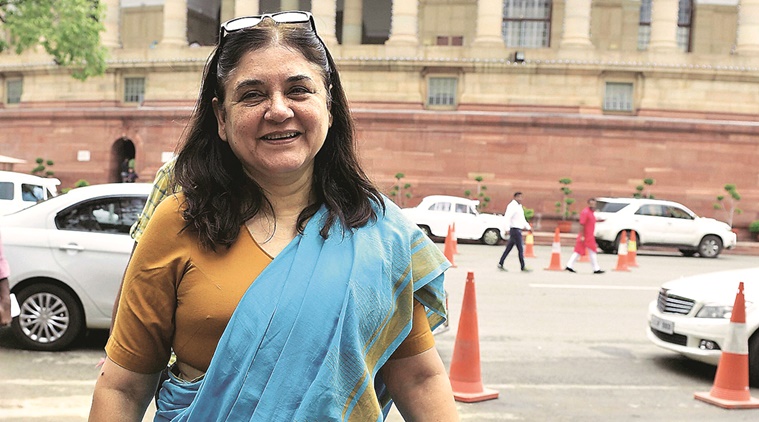In fact: Landmark maternity Bill has a few loose ends
The Maternity Benefits (Amendment) Bill, passed by Rajya Sabha on August 11, is intended to help new mothers bond with their babies, and enable them to breastfeed.
 WCD Minister Maneka Gandhi was the driving force behind the Bill.
WCD Minister Maneka Gandhi was the driving force behind the Bill.
For a country that isn’t wealthy, and roughly a third of whose children are malnourished, steps such as the recent increase in maternity leave as mandated by law from 12 weeks to 26 would appear to have been long overdue. As Women and Child Development Minister Maneka Gandhi told Parliament, the Maternity Benefits (Amendment) Bill is to help new mothers bond with their babies and also to enable them to breastfeed.
The Maternity Benefits (Amendment) Bill, passed by Rajya Sabha on August 11, is intended to help new mothers bond with their babies, and enable them to breastfeed. Exclusive breastfeeding for the first six months is widely believed to be the easiest and most cost-effective way to fight child malnutrition. Last year, the Rapid Survey of Children conducted by the WCD Ministry showed 29.4% of children were underweight, 15% were wasted (low weight for their height), and 38.7% were stunted (low height for their age).
According to WHO, “Optimal breastfeeding is so critical that it could save over 800,000 under-5 child lives every year… Exclusive breastfeeding for 6 months has many benefits for the infant and mother… Initiation of breastfeeding, within one hour of birth, protects the newborn from acquiring infections and reduces newborn mortality. The risk of mortality due to diarrhoea and other infections can increase in infants who are either partially breastfed or not breastfed at all.”
The extent of child malnutrition in India has in fact been highlighted repeatedly in various surveys by national and international agencies, including the 2012 Hungaama Survey that brought it into sharp focus. Seen strictly through the prism of malnutrition, the Bill is a near perfect piece of legislation. Where it falls short, though, is in its other avowed goal of women’s empowerment.
Watch Video: Govt Moves To Ban Commercial Surrogacy: What It Means
By its silence on the question of longer paternity leave, the Bill makes some problematic and potentially counter-productive assumptions. It reinforces the already deeply entrenched social norm of babycare being left exclusively to the mother, effectively relieving the father of responsibility. As Independent MP Anu Aga told the House, “Men leave childcare to their wives and glorify motherhood.”
Also, in the fact that maternity leave has statutory backing and paternity leave doesn’t, lies a threat to employment parity among the sexes. All other parameters being comparable, an employer faced with the choice of hiring a man who, if he has a child, would be entitled to just a couple of weeks — or none at all, depending on the policy of the employer — of paid leave against a woman who would have to be “accommodated” for six-and-a-half months, could be expected to hire the former. Currently the central government allows 15 days of paternity leave, but it is not obligatory for the private sector to do so.
Even with the current 12-week leave provision, it is an open secret that employers are reluctant to hire pregnant women. And many married women have to face questions related to family planning at interviews, especially for jobs in sectors such as manufacturing.
Longer and mandatory paternity leave would not just give statutory backing to the idea of men being equal partners in bringing up the child — an idea that has only just started gaining traction in small sections of society — but also preempt to some extent discrimination against women on the ground that they would be the only ones required to be given long childcare leave.
On the question of surrogate motherhood too, the otherwise progressive Bill has a lacuna. It allows maternity leave for adoptive mothers and those who have chosen to have a baby through surrogacy — but leaves out the surrogate mother herself. That, as DMK MP Kanimozhi said, amounted to treating the woman’s body as a “baby making machine” that doesn’t need or deserve to recover from the exhaustion of childbirth, should the mother choose to give the baby away. Asked why surrogate mothers had been left out, Gandhi said, “The 15-day or so leave that the surrogate mother is entitled to at her workplace is sufficient… There is no question of bonding.”



- 01
- 02
- 03
- 04
- 05



































